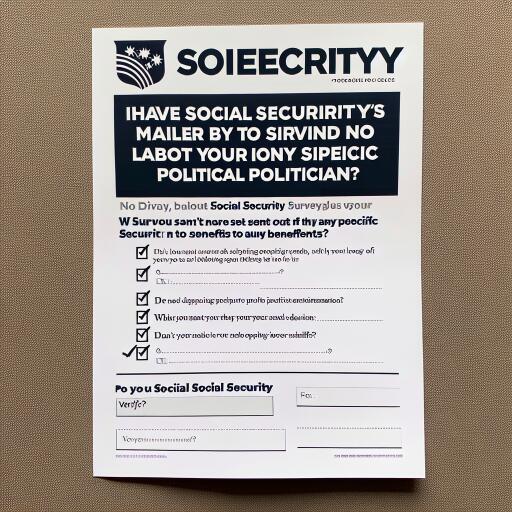A Deep Dive into the Social Security Survey Mailer
Recently, a curious event unfolded in Northeast Ohio, drawing attention to a mail survey about protecting Social Security benefits. This survey referenced U.S. Rep. Emilia Sykes, who was freshly reelected, and surprisingly, solicited donations. One local resident, Rita Smith, brought this peculiar mailer to light when she received it and found it noteworthy.
The Origins of the Survey
Upon receiving the survey, the first instinct was to connect the dots leading to Rep. Emilia Sykes herself. However, upon contacting her office, clarity was attained. It was confirmed by Sykes’ staff that the congresswoman was not associated with the dispatch of this survey, either directly or indirectly.
A more meticulous examination of the document reveals the true senders. It turns out the survey originates from an organization named the Council for Retirement Security. Beneath this name, printed in minute typeface, lies a crucial piece of information: The Council for Retirement Security is actually a campaign run by the National Seniors Policy Center, classified as a 501(c)4 entity.
Understanding the Purpose
This leads us to a critical revelation — the survey is issued by a dark money group, specifically engaged in lobbying. While such groups are perfectly legal, their operations and funding sources are often shrouded in secrecy. Their primary intent is to influence legislation and public policy to align with their agendas.
A visit to the Council for Retirement Security’s website elaborates on their activities. They are actively involved in promoting various petitions and surveys, including the Social Security Lock-Box Act petition. This exact petition was sent to our resident viewer, Rita, as part of the mailer campaign.
Verification and Intent
With all these findings, we can assert with confidence that this mailer is indeed legitimate, albeit not from Rep. Emilia Sykes. Instead, it is an endeavor by the Council for Retirement Security and their affiliated advocacy efforts.
The mailer purports to express a desire to share the survey results with Rep. Sykes, aiming to sway her legislative decisions regarding the proposed Social Security Lock-Box Act. Alongside gathering public sentiment, the organization subtly folds in a plea for financial contributions.
Implications and Conclusion
What stands out in this scenario is the intricate web of influence exercised by lobbying groups under the guise of public surveys. By closely aligning their content with legislative interests, these groups strive to make their voices heard through the electorate.
While it is crucial for citizens to be engaged and express their opinions on significant legislative matters such as Social Security benefits, discerning the origin and purpose of communication is equally vital. Transparency plays a key role in fostering an informed public capable of participating meaningfully in democratic processes.
This situation reminds us to scrutinize the details of unsolicited correspondence and exercise caution before offering support, monetary or otherwise. By doing so, we ensure our contributions are directed according to our genuine intents and values.
Ultimately, political literacy and vigilant participation are pillars that uphold the integrity of democracy, helping us steer clear of potential misinformation and ensuring our actions align with informed choices.









